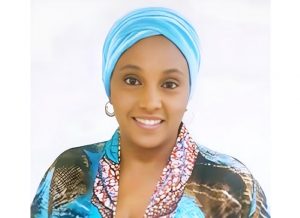Namibia: Anti-femicide protesters call for a state of emergency – Tek Portal

The protests, planned online in response to news of another attack, left some commercial areas of the southern African nation, including the central business district of its capital, Windhoek, at a standstill over the course of four days earlier in October.
While the government has since promised to tackle sexual and gender-based violence — and the protests have paused for now — activists say they want concrete action, telling CNN on Monday that their campaign would resume unless three demands are met.
Activist Bertha Tobias said that the protesters want specific deadlines on government policy actions; the resignations of Namibian gender equality minister, Doreen Sioka and her deputy Bernadette Jagger; and the declaration of a state of emergency.
Protesters are engaging with Sioka and Jagger this week, but if substantial progress isn’t made they will return to the streets, Tobias said.
CNN reached out to Namibia’s Ministry of Gender Equality and Child Welfare, but has yet to receive a reply.
Marching through the streets
On October 6, police found a body in a shallow grave outside the port town of Walvis Bay. It is believed to be that of 22-year-old Shannon Wasserfall, who went missing in April, Namibian police commissioner Moritz Naruseb said at a press conference.
Two days later, campaigners marched through the streets of Windhoek and other cities demanding political action to tackle rape, sexual abuse and femicide.
On October 13, the government released a statement assuring the public that “this situation cannot be allowed to continue.” It promised to implement measures which included the establishment of a sexual offenders register and dedicated courts to handle sexual and gender-based violence.
The statement was criticized by activists who say it is time for material change, and have called for a definitive timeline showing the actions the government will take.
Namibia’s president, Hage Geingob, met protest leaders on Friday. He said the nation as a whole needed to do more to fight “the scourge” of sexual and gender-based violence.
“I told them [the protestors] it is wrong to assume that we are at war against each other, we have to address the issue together,” Geingob said in a tweet. “Gender-based violence is something we have to address collectively as a nation. I am with you.”
‘If women can’t live their lives properly in Namibia, then nobody should’
“Namibia is in a SGBV crisis where women don’t feel safe,” Tobias told CNN. “Everyday you hear stories about women who might have been raped or had their throat slit by their partner. The philosophy behind this campaign is that if women can’t feel safe and continue to live their lives properly in Namibia, then nobody should and we have to shut it all down until we can do that.”
Sexual and gender-based violence is a serious problem in Namibia. Last year police handled at least 200 cases of domestic violence each month, Hendrick Olivier, the commander of Namibia’s gender based violence protection unit, told the Namibian Press Agency.
Even as the protests were taking place, 27-year-old Gwashiti Tomas was murdered, at Uuhongo village at Onesi in the Omusati region. Omusati regional police commander Titus Shikongo told The Namibian that Tomas’ throat was cut.
A youth movement
“Period poverty, child marriage and SGBV speak to one thing: That women are ultimately subjected and subjugated to the most heinous forms of treatment, erasing their autonomy and rendering them second-class in the country,” Ndiilo Nthengwe, another activist and a cousin of Wasserfall, told CNN.
Previous protests against sexual and gender-based violence have been localized and short-lived.
The government has paid attention to the movement this time around because of its widespread nature and a louder youth voice, Ndapwa Alweendo, a spokesperson for Sister Namibia, a non-profit organization promoting women’s rights, told CNN.
“This is a sign from our younger generation that they are not satisfied with the usual political response. Social media has allowed activists to mobilize this into a national movement and brought international attention,” she said.
Power Pad Girls, Slut Shame Movement and OutRight Namibia are other women’s rights organizations which have taken to social media to support the Shut It All Down movement.
While the reach of the protests gives Alweendo some hope, she agrees with other activists that Geingob must deliver a more definite agenda.
“Until we see acknowledgement from the government of the things that should be implemented, and a real commitment to implementing them, I’m hesitant to be optimistic,” she said.
CNN’s Anita Patrick contributed to this report.
http://rss.cnn.com/~r/rss/edition_africa/~3/FFKRbQJMf08/index.html





